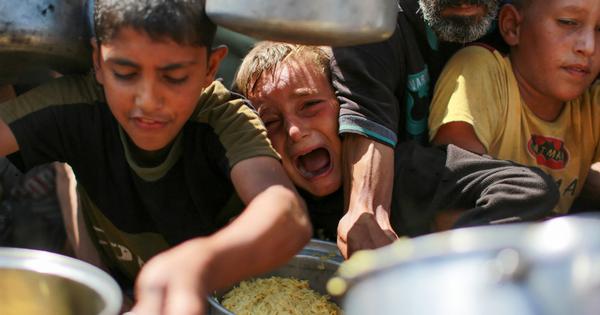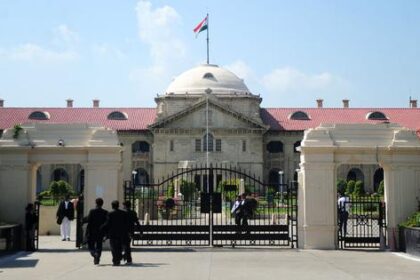Famine in Gaza draws unsettling comparisons to the British-imposed famine in Bengal during colonial rule.
The humanitarian crisis in Gaza, marked by severe famine, has raised alarming comparisons to the devastating famine in colonial Bengal a century ago. This situation has been framed within the context of economist Amartya Sen’s insights, which argue that functioning democracies tend to prevent large-scale starvation due to their accountability to citizens. Unlike democratic governments that must answer to their electorate, the British colonial authorities in Bengal operated without such constraints, a situation mirrored today by Israeli governance in occupied Palestine.
Recent reports indicate that in Gaza, around 514,000 individuals out of a population of 2.1 million are currently facing famine. The Integrated Food Security Phase Classification, a global standard for assessing food insecurity, confirmed that Gaza meets all critical thresholds for famine as of August 22. This classification is stringent, requiring that at least 20% of households experience extreme food shortages, that 30% of children suffer from acute malnutrition, and that two people per 10,000 residents die daily due to starvation. All three criteria have been satisfied in the region.
The United Nations World Food Program previously described the humanitarian situation in Gaza as unprecedented in this century. The Integrated Food Security Phase Classification has called for an immediate ceasefire to facilitate the delivery of humanitarian aid, medical supplies, and sanitation services, emphasizing that the worsening conditions are poised to escalate mortality rates dramatically. Over 320,000 children in Gaza under the age of five are at risk of acute malnutrition, with UNICEF actively working to provide life-saving nutritional supplies.
In a grim update, Gaza’s Ministry of Health reported that in just the prior month, 198 individuals succumbed to malnutrition. This includes over 83 deaths since the declaration of famine, numbers that are anticipated to rise as the crisis deepens. On September 1, the International Association of Genocide Scholars passed a resolution asserting that Israel’s actions in Gaza align with the definition of genocide as per the 1948 United Nations Convention.
The partnership responsible for the famine classification cited four reasons for its conclusion that the situation in Gaza is manmade. A significant factor is the near-total collapse of the food system, with 98% of cropland destroyed or inaccessible and a complete ban on fishing. An ongoing Israeli siege has severely restricted the flow of food, water, and medical supplies since March, with only slight easing since May. Since the onset of the conflict in October 2023, the entire population of Gaza has been displaced multiple times, compounding the humanitarian crisis.
Moreover, the recent Israeli military operations have resulted in a sharp increase in casualties, adding to the already high death toll of over 63,000 Palestinians during the previous 22 months of conflict. Accusations against Israel have emerged from various international entities, including the United Nations and the World Health Organization, who claim the deliberate withholding of humanitarian aid constitutes forced starvation. Reports indicate that food supplies are deteriorating in UN warehouses, while NGOs remain barred from entering the territory to assist.
The historical context of food restrictions in Gaza dates back to 2007 when Israel imposed a tightened blockade. At that time, Israeli officials calculated the minimum caloric needs for Palestinians and tailored food supplies accordingly, aiming to restrict consumption without causing outright starvation. Currently, humanitarian organizations are advocating for a basic food ration significantly lower than previously calculated, yet actual food deliveries have fallen drastically short of what is necessary.
Israel has denied the existence of famine, attributing hunger to distribution failures and alleging that Hamas is hoarding aid. Meanwhile, countries like the United States, United Kingdom, and European Union continue their support for Israel, complicating the efforts to alleviate the humanitarian crisis in Gaza, which is often referred to as an “open-air prison.”








